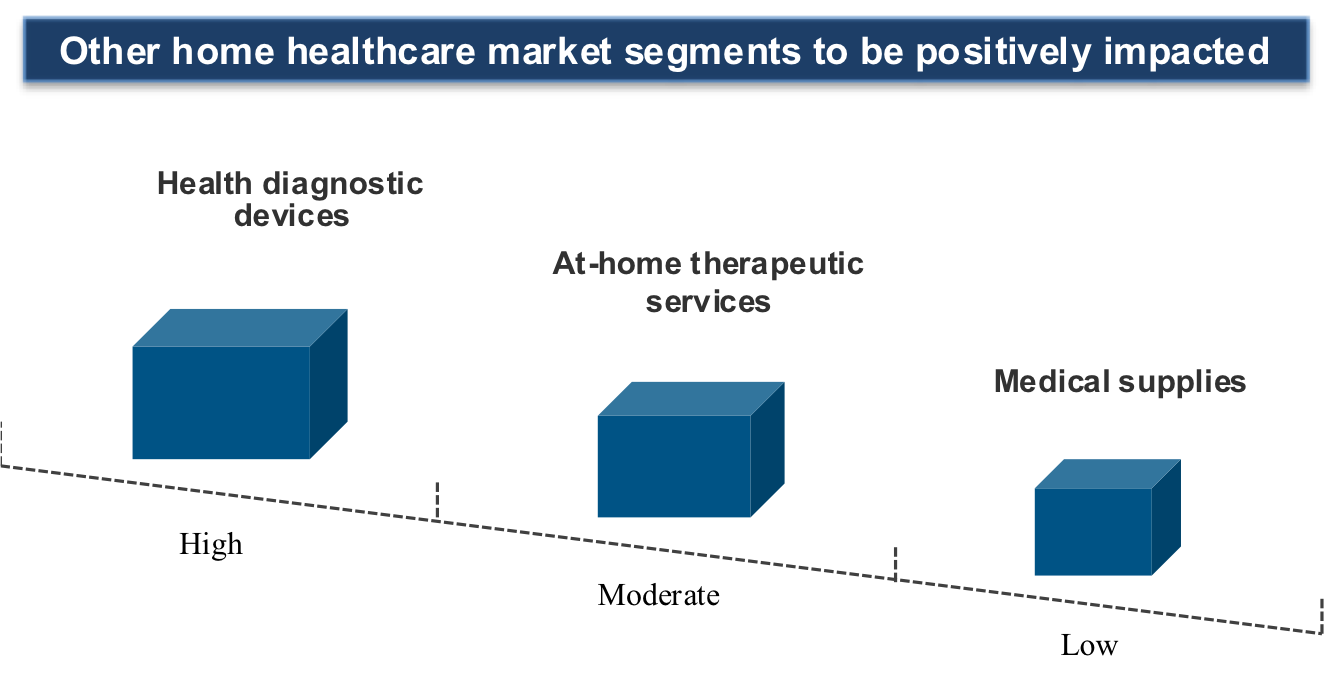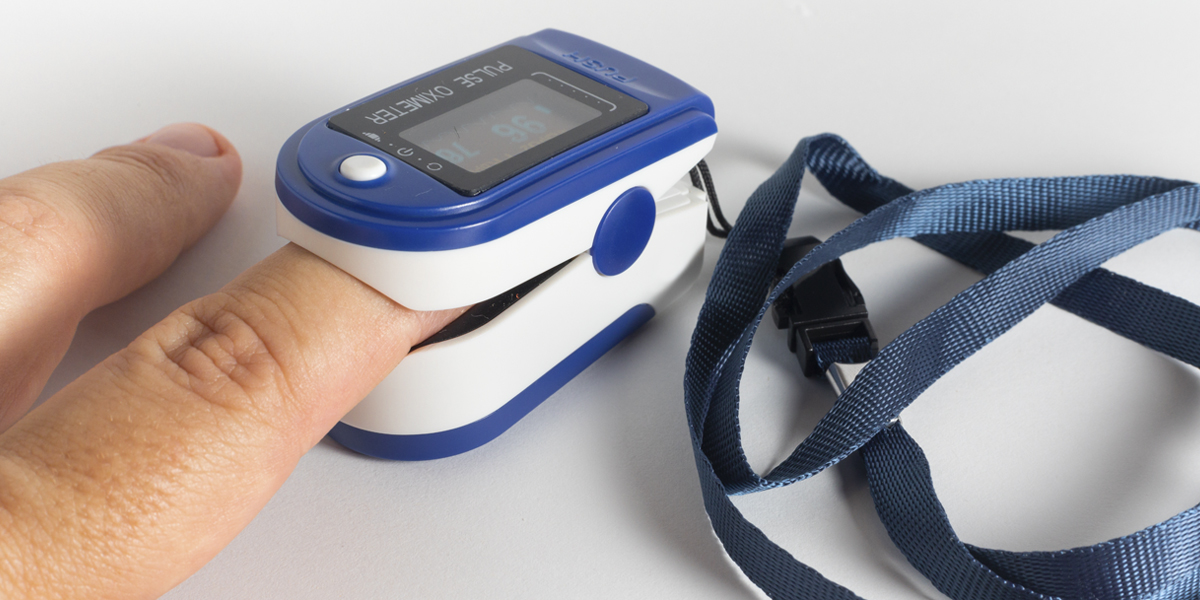With an increasing focus on healthcare in the current times, the home healthcare market is seeing accelerated growth. But before we dive into it, let’s quickly familiarize ourselves with the latest healthcare concepts and what they mean.
What is home healthcare?
Home health care is the cost-effective medical assistance provided at home by professionals or non-professional caregivers at a time of illness or injury. It includes health care services, home care solutions, a wide range of medical products, and health-tech offerings like Telehealth and telemedicine solutions. Several advanced medical devices such as blood pressure monitors, pulse oximeters, and self-diagnostic devices are used.
The home healthcare market can be categorized into 3 segments:
- Home healthcare services: at-home nursing services, medical consults.
- Home healthcare devices: health screening, monitoring, and self-diagnostic devices like pulse oximeters.
- Home healthcare solutions: Telehealth and telemedicine.
Home healthcare solutions like Telehealth and telemedicine are important terms in light of the current pandemic as their demand sees a drastic increase. As the lockdown continues, there is a palpable unease and increased stress about immunity and health. Amid these trying times, these two systems are stealing the spotlight.
- Telemedicine refers to healthcare services that are delivered by medical professionals to patients using digital information and communication platforms.
- Telehealth includes facilitation of these services through patient education, medical care and online consultation through telecommunication and digital platforms.
These services have rapidly gained traction with India’s progress in technology and innovation over the years. Today, they’re more relevant than ever as they break past time and distance barriers.
We spoke to our research team who gave an insight into the current state of the home healthcare market in India and how the COVID-19 pandemic stands to impact it for the future.
The impact of COVID-19
The home healthcare sector in India accounted for about 3.6% of the country’s overall healthcare industry earning in 2019. According to Netscribes research, it is expected to expand at a compound annual growth rate (CAGR) of 18.91% during the 2020-2025 period.
The coronavirus outbreak has had a severe impact on the home healthcare market. The next five years from now is expected to see the home healthcare solutions segment emerging as the fastest growing segment in the market. With social distancing as the new norm and hospital visits not only highly risky but also expensive; telemedicine solutions have become a convenient alternative. This has generated greater demand for home healthcare solutions. The accompanying cost-benefits along with India’s technological advancements are driving the growth of this market.
The segments considerably impacted during this period include:
- At-home nursing services: In the initial phase of the lockdown, the market for nursing services saw a considerable decline. However, with outdoor medical capacities crossing their threshold and the government taking initiatives to train and employ home care nurses, the market is expected to grow rapidly.
- Medical diagnostic devices: With travel restrictions and the risk of contagion on stepping outside, there has been a significant escalation in the demand for at-home health screening and monitoring devices.
- Telehealth solutions: Post the initial days of confusion and overcrowding at institutions, many hospitals, individuals, corporates, and e-pharmacies adopted new wellness guidelines of telemedicine and teleconsultation. A convenient way to evaluate and treat a patient without being exposed to infection, the Telehealth segment is expected to significantly rise in the market even post the lockdown.
The crisis will also significantly affect other home healthcare segments like health diagnostic devices, medical supplies and at-home therapeutic services. While the pandemic drives the accelerated growth of this market, it faces several setbacks. The lack of insurance coverage and its unorganized and fragmented nature poses a severe hindrance for home healthcare workers.

Government initiatives
In late March, in the first phase of the lockdown, the Ministry of Health and Family Welfare necessitated the use of Telehealth and furthered telemedicine practices in India. In collaboration with the Indian Government think tank Niti Aayog, they released official guidelines for telemedicine practices across the country.
These guidelines were put in place to provide a framework for healthcare workers to deliver remote healthcare services over phone and online platforms. The guidelines reassured confidentiality maintenance and documentation of every consultation. Subsequently, a series of phone numbers were released in circulation so patients could take appropriate measures. The initiative’s purpose mainly served to authorize registered medical practitioners to provide remote services as an alternative to services offered by the Medical Council of India (MCI).
With the exhaustion of hospital capacities and medical professionals, the home isolation process has been granted approval by most state governments across the nation in the current phase. Training and employment of home healthcare workers has been initiated following the Delhi Government’s example in May. This not only prevents overcrowding at hospitals but also provides quality healthcare services while ensuring social distancing. The effort also remains to minimize the demand-supply gap while containing the spread of the virus.
The way forward
With the prolonged impact of the pandemic, the home healthcare sector continues to see massive growth and increased demand. Companies too have taken significant initiatives such as at-home chemotherapy services, COVID-19 home screening devices, and the Cobot-19 – an awareness and information chatbot that operates via WhatsApp.
The pandemic has also stirred up growth opportunities for the insurance market. According to the Indian Insurance Industry, a recent move by the Insurance Regulatory and Development Authority of India (IRDAI) extends coverage for homestay and care. This will have a major impact on the home healthcare markets now and in the future.
For more information and detailed insight, check out our report on ‘Home Healthcare Market in India 2020’.
The rapidly evolving needs of patients worldwide are steering new developments in the healthcare industry. Netscribes provides you with healthcare market research solutions to efficiently adapt to these shifts and proactively navigate the market. To know more, contact us at, info@test.netscribes.com






